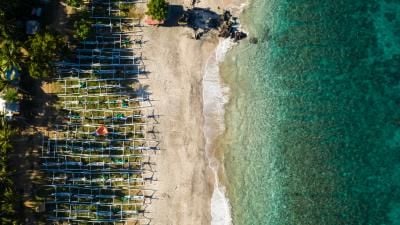Dagmara is a partnerships and business development professional skilled in philanthropy, private sector and development finance.
In partnership with the United Nations Global Compact.
This page was published on

This project's duration was 2 years
£1.3million
The ambition of the UN Global Compact is to accelerate and scale the global collective impact of business by upholding the Ten Principles and delivering the SDGs through accountable companies and ecosystems that enable change.
Established through a pioneering partnership between the United Nations Global Compact and Lloyd’s Register Foundation, the Ocean Centres will serve as locally led, multi-stakeholder platforms in Brazil, Ghana, Kenya, India, Bangladesh, Indonesia and the Philippines. Each Centre will address pressing safety and sustainability challenges specific to their national ocean economy, advancing resilient, people- and nature-positive development.
By bringing together diverse stakeholders, our Ocean Centres foster collective dialogue to identify needs, challenges, and solutions that unlock safe blue growth. Building on this, they aim to promote responsible business practices in ocean-based economies and influence the creation of new standards and policies.
Ocean industries are vital to food security, clean energy, global trade, and livelihoods, especially in emerging economic countries, where maritime sectors underpin economic resilience. Yet they remain among the most hazardous sectors in the world. Ocean Centres are the only multi-stakeholder platforms of their kind focused on developing evidence-based, context-specific solutions to mitigate safety risks while supporting the expansion of sustainable ocean industries.
The Centres will catalyse national dialogues on safe practices across key sectors such as green shipping, ports, fishing, aquaculture, offshore renewables, and ocean finance. Working groups - comprised of engineers, safety professionals, investors, and local stakeholders—will translate these insights into actionable recommendations and policy input.
Each Ocean Centre is led by a UN Global Compact Country Network and guided by a Country Lead who coordinates national engagement and fosters knowledge-sharing across the network. Their work builds on national Blue Economy reports that map industry gaps, workforce readiness, and infrastructure vulnerabilities, offering a blueprint for more resilient and investable ocean economies.
The Centres are not physical offices but living networks—community-driven, inclusive, and locally grounded. From tackling heat stress among maritime workers to addressing infrastructure risk and gaps in safety governance, they will surface practical solutions and elevate them through policy dialogues and regulatory pathways.
Changing global workforce patterns, climate change, the energy transition, and technological innovation continue to bring new challenges and opportunities in growing ocean economies. Collective, local action to drive safe and sustainable solutions is key to protecting those most affected as we work towards a people and nature positive future.”
Erik Giercksky Ocean Lead at the UN Global Compact